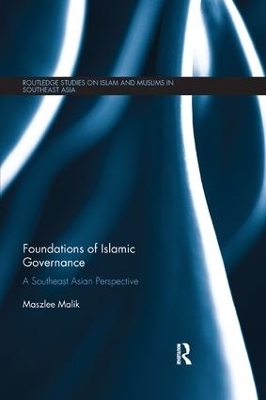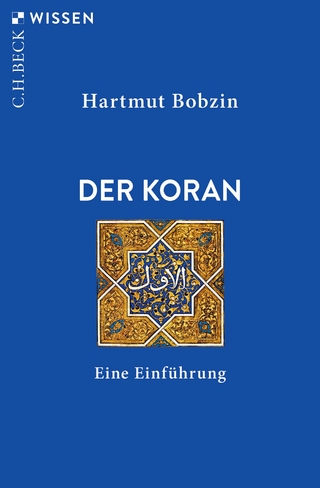
Foundations of Islamic Governance
Routledge (Verlag)
978-1-138-36597-1 (ISBN)
The aim of this book is to explore and analyze the Islamic axioms, foundation principles and values underpinning the field of governance in an attempt to construct the architectonics of a new systemic and dynamic theory and formulate the articulation of ‘Islamic governance’. This discursive and abstract, rather than being an empirical exercise, assumes to produce a ‘good governance’ framework within its own formulation through a value-shaped dynamic model according to maqasid al-Shari’ah (higher objective of Shari’ah) by going beyond the narrow remit of classical and contemporary discussions produced on the topic, which propose a certain institutional model of governance based on the classical juristic (fiqh) method. Through an exclusive analytical discursive approach in this book, readers will find that Islam as one of the major religions in the contemporary world with the claim of promising the underpinning principles and philosophical foundations of worldly affairs and institutions through a micro method of producing homoIslamicus could contribute towards development of societies by establishing a unique model of governance from its explicit ontological worldview through a directed descriptive epistemology.
Maszlee Malik is assistant professor in the Faculty of Islamic Revealed Knowledge and Human Sciences at the International Islamic University Malaysia, Kuala Lumpur. He holds a doctorate degree (PhD) from Durham University in Durham, United Kingdom in Good Governance. His research area is in Islamic jurisprudence (fiqh), Classical and Contemporary Islamic Political Thoughts, and Islamic Movements and Good Governance. He is the author of the books, Good Governance: a Critical introduction and Islam, Civil Society and Islamic Governance.
1. Preface
2. Acknowledgement
3. Prolegomena
4. Introduction
5. CHAPTER ONE: Governance: Definitions and Conceptual Framework
6. CHAPTER TWO: Deconstructing the Concept of Good Governance
7. CHAPTER THREE: Religion and Governance: A Philosophical Inquiry
8. CHAPTER FOUR: Ontological and Epistemological Sources for Islamic Governance
9. CHAPTER FIVE: New Approach to the Texts: Epistemological Method-Related Concerns
10. CHAPTER SIX: Contributions of Muslim Scholars in the Development of Knowledge Base for Governance
11. CHAPTER SEVEN: Architectonics of Islamic Governance: Locating the Axioms, Foundational Principles and Working Mechanism
12. CHAPTER EIGHT: Articulation of Islamic Governance
13. CONCLUSION CHAPTER
14. Epilogue
15. Bibliography
| Erscheinungsdatum | 25.09.2018 |
|---|---|
| Reihe/Serie | Routledge Studies on Islam and Muslims in Southeast Asia |
| Zusatzinfo | 1 Line drawings, black and white; 1 Illustrations, black and white |
| Verlagsort | London |
| Sprache | englisch |
| Maße | 156 x 234 mm |
| Gewicht | 453 g |
| Themenwelt | Geisteswissenschaften ► Religion / Theologie ► Islam |
| Sozialwissenschaften ► Politik / Verwaltung ► Politische Systeme | |
| Sozialwissenschaften ► Politik / Verwaltung ► Politische Theorie | |
| ISBN-10 | 1-138-36597-1 / 1138365971 |
| ISBN-13 | 978-1-138-36597-1 / 9781138365971 |
| Zustand | Neuware |
| Informationen gemäß Produktsicherheitsverordnung (GPSR) | |
| Haben Sie eine Frage zum Produkt? |
aus dem Bereich


